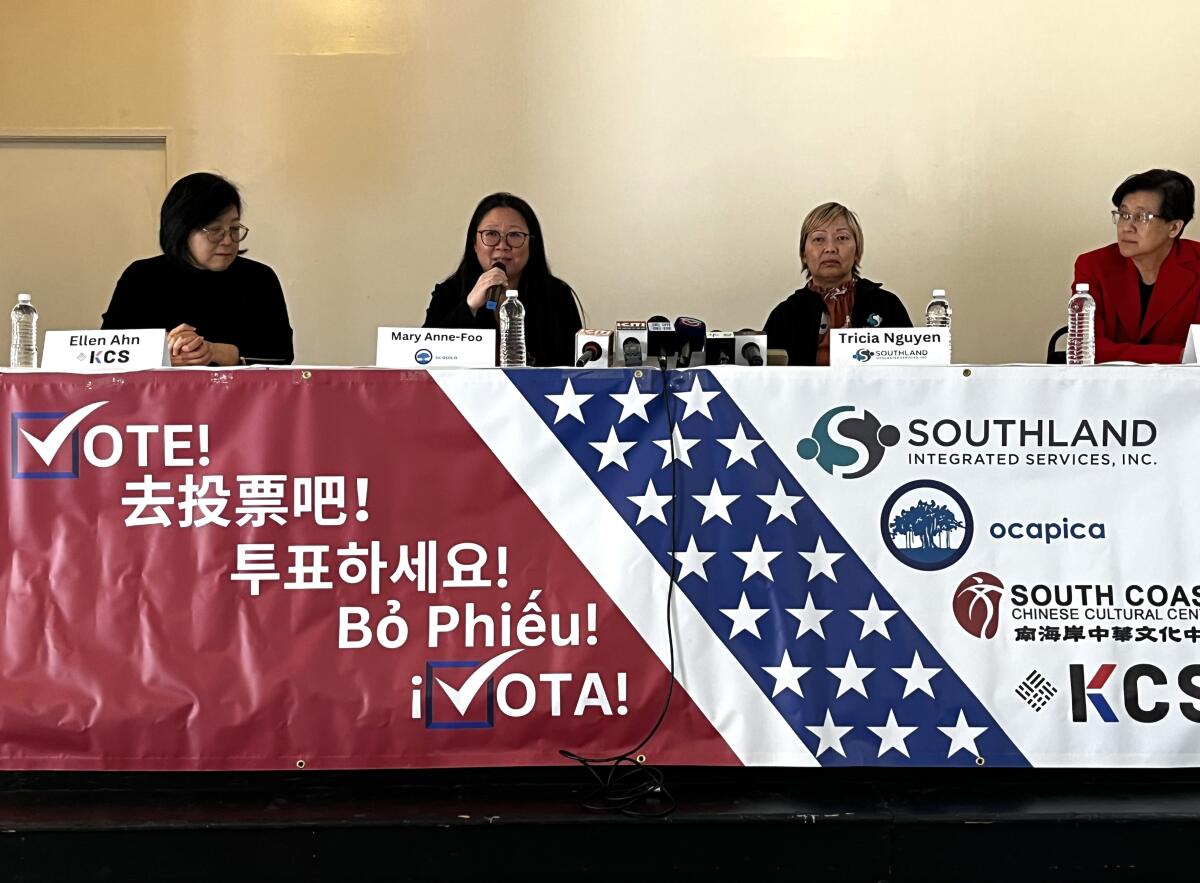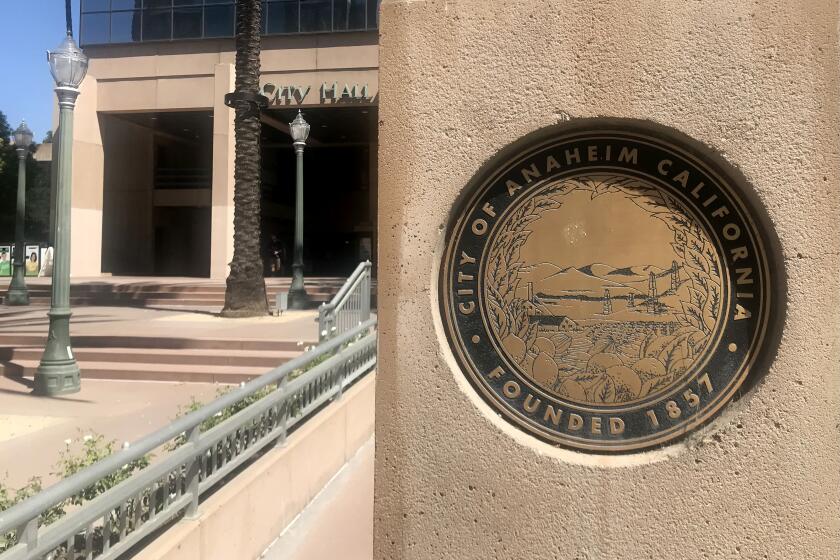New O.C. Asian American Initiative aims to boost civic engagement

- Share via
On the eve of the March primary election, four community leaders gathered in Little Saigon to mark a “pivotal moment” for Orange County’s Asian Americans.
As campaign signs dotted neighborhood homes around St. Anselm’s Episcopal Church in Garden Grove, a press conference held inside the sanctuary sounded a rallying call to boost civic engagement.
Leaders of Korean Community Services, Orange County Asian and Pacific Islander Community Alliance, Southland Integrated Services and South Coast Chinese Cultural Center announced that they are joining forces in an effort to reach more than 100,000 voters ahead of November’s general election.
On Monday, the new collaborative was unveiled as the O.C. Asian American Initiative — and it aims to shake up the county’s political landscape.
“This county is changing rapidly, demographically, as well as politically,” said Ellen Ahn, executive director of Korean Community Services, at the press conference. “The Asian American voice needs to be heard.”
Asian Americans now comprise about a quarter of the county’s 3.2 million residents, making O.C. the third largest Asian county in the United States. It is also home to the largest Vietnamese American and second largest Korean American populations in the nation.
As the fastest growing racial demographic in the county, the Asian American population grew by 31% between 2010 and 2020, according to census data.
“Why not come together to be even stronger?” Mary Anne Foo, founder and executive director of Orange County Asian and Pacific Islander Community Alliance, told TimesOC. “Why not reach a larger number of voters? And why not do it in a way that is language accessible and is culturally appropriate for our communities?”
The initiative, which is comprised of the four largest Asian community-facing organizations in the county, will be working in tandem with APIA Vote, a national nonpartisan nonprofit that engages Asian American and Pacific Islander communities, towards that end.
Ahead of November’s general election, text blasts, phone banking and mailers round out the plan to turn Asian Americans out to the polls.
Anaheim City Council members voted to schedule a recall of Natalie Rubalcava, backed by a union representing hotel and convention center workers, for June 4.
“This is a time when we have a lot of misinformation, a lot of confusion,” said Tricia Nguyen, CEO of Southland Integrated Services, at the press conference. “We try to educate our community that you need to understand what or who you’re voting for. You can be a Democrat. You can be Republican. You can vote for whatever the issue is. But the most important thing is that you have that right.”
According to a recent AAPI Data/AP-NORC poll, inflation and immigration top issues that Asian American, Native Hawaiian and Pacific Islander voters are most concerned about nationwide.
In the 2022 election, reports of anti-Asian racism during the pandemic encouraged a lot of Asian Americans to vote, Foo said.
“Orange County is an important county in our national landscape,” said Ahn. “It is a county that has traditionally been very Republican. It is now changing. We are a swing county and in this swing county, Asian Americans are a swing vote. There is a lot of power in this election.”
According to Foo, education, elder care, homelessness and affordable housing rounded out key issues at the local level.
She added that the idea for the initiative germinated over several conversations between leaders. They shared a sense of frustration that many policymakers attended parades in the Asian American community but didn’t follow up afterward.
“We didn’t want policymakers just to come to our events,” Foo told TimesOC. “We wanted them to actually listen to the community and do something about our concerns.”
With many journalists from ethnic media outlets present at the press conference, the initiative also made an appeal for them to be partners in the cause of civic education.
For Yulan Chung, chief executive officer of South Coast Chinese Cultural Center, banding together for the initiative is already a resounding statement of wanting to be heard.
“By working together, we believe that we can empower our community to come out to vote,” said Chung at the press conference. “If they don’t know how to vote, we will educate them. If they have difficulty, we will assist them.”
All the latest on Orange County from Orange County.
Get our free TimesOC newsletter.
You may occasionally receive promotional content from the Daily Pilot.







